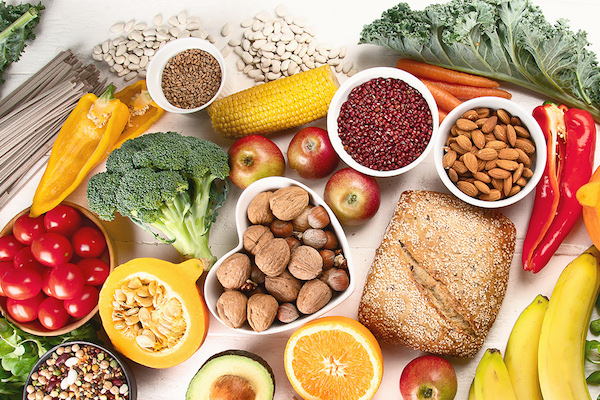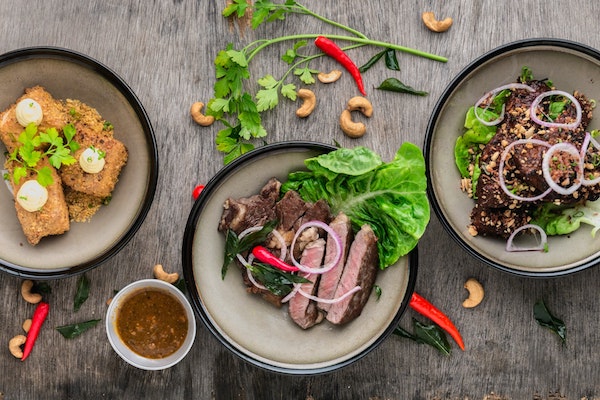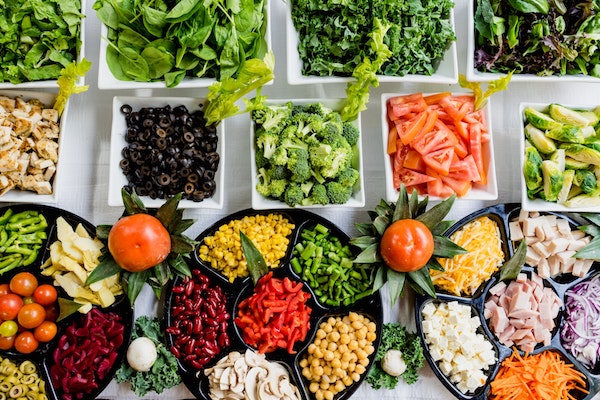Our bodies are hosts to a wide variety of microorganisms. Bacteria are the most common, but other single-celled organisms such as viruses and fungi can also easily be found both inside and on your body. All these microorganisms combined are your microbiota – which can weigh as much as five pounds. Your microbiome is then all the genes your microbiota contains, although these two terms are often used interchangeably.
But wait, aren’t bacteria and other microbes meant to be harmful? It’s actually a spectrum – some microbes can make you very ill while others actually promote or maintain your body’s health. For example, microbes in a baby’s gut help digest breast milk – babies can’t digest it themselves! Microbes also help to program the immune system, provide nutrients to the body and prevent harmful bacteria and viruses from multiplying.
Of course, maintaining a healthy microbiome is necessary for them to perform these essential tasks. If a microbe ends up somewhere it shouldn’t be, or if they begin to multiply too rapidly, they can even turn harmful. Therefore, in this article, we will discuss how your microbiome affects your body. We will also provide a list of habits you can practice to encourage a healthy microbiome.
What is the impact of your microbiome on your daily health?
Your large intestine (i.e., your gut) is home to most of your microbiome. Naturally, this means that its greatest impact is on your digestive health. These microbes can manipulate your metabolism and hunger – they can even cause you to crave certain foods over others. A healthy microbiome can therefore promote weight loss, produce nutrients, and support bone development. In fact, lean people have been found to have more diverse microbiomes than those who are overweight.
Other areas you can find good microbes in include your mouth, lungs, nasal passages, skin and brain. When their levels are balanced, you will notice an improvement in your skin health, sleep quality and mood. They can even help combat joint and muscle pain.
Our microbiomes clearly play a big role in influencing our daily health, comfort and quality of life. Disrupting their processes can lead to the development of chronic diseases such as Irritable Bowel Syndrome (IBS), diabetes, and heart disease. Unbalanced microbiomes can also make you more susceptible to infections.
The good news is, our microbiome’s health is in our control! Instead of letting these microbes control you, you can take matters into your hand. As their lifespan is only about 20 minutes, they will respond rather quickly to any environmental changes. All you have to do is eat healthy foods that they can thrive on.
Good habits to encourage a healthy microbiome
Now, let’s take a look at four habits that can encourage a healthy, balanced microbiome.
#1. Add pre- and probiotics to your diet

Prebiotics refer to foods that feed beneficial bacteria while probiotics contain these bacteria. These two foods are key to a diet that promotes a balanced microbiome. Examples of foods that contain these compounds include garlic, onions, leeks, asparagus, bananas, dandelion greens, barley, oats, apples, cocoa, yoghurt, kimchi, miso, pickles, and tempeh. As you can see, it’s pretty easy to incorporate these foods into your diet!
Probiotic supplements, such as this one, can also be used to supplement your diet. Just take one capsule three times a day and you’ll feel the effects on your digestive health soon enough.
#2: Limit unhealthy food

No diet will be effective unless you can follow it consistently. This means that you need to be aware of what you can and cannot eat. Foods high in sugars, artificial sweeteners, chemical preservatives and refined carbohydrates can cause weight gain and inflammation. This is because the bad bacteria in your body thrive on these foods, kill your good bacteria, and throw the delicate balance of your microbiome off.
Of course, it can be difficult to avoid these types of unhealthy foods, especially if you eat out often. One method is to cook your own food a few times a week – this way, you know exactly what’s going into it! You can also cook in large batches and store it in the freezer or refrigerator.
#3: Eat foods that are healthy for your gut

Avoiding unhealthy foods isn’t enough – you should also learn which foods are good for you so you can incorporate those into your diet. Apart from pre- and probiotics, fruits, nuts, seeds, fish, flaxseed oil, olive oil, beef, chicken, lamb, shellfish, and dairy products all promote gut health.
If you want to go an extra step, learn how to ferment your foods, as this provides more probiotic benefits. Plus, it’s a fun new skill to pick up!
#4: Diversify your diet

If you want a diverse microbiome, you’ll need a diverse diet. Plants are especially useful – eat more than 30 different plant types a week for maximum benefits. If this is tough, aim for at least 10 different plant types and slowly work your way up. You can also switch between cooked and raw foods to diversify your diet even more. An easy trick is to prepare regularly home-made smoothies, in which you can fill loads of different plant types. We offer a few examples of good smoothie recipes here.
The main challenge in maintaining a healthy microbiome isn’t about simply eating the right foods. It’s more about staying away from eating convenience foods too often, as they just do not have the nutrients the good bacteria in your gut needs to thrive.
Your microbiome is clearly an important aspect of your daily health. Therefore, your internal environment needs to be carefully regulated and the most effective way to do this is via your diet. Balance is key – it will facilitate a peaceful, coexistent relationship between pathogenic and symbiotic microbes.
If you follow the four simple habits above, your microbiome will be healthy and happy, and you will notice an improvement in your digestive and overall health.
